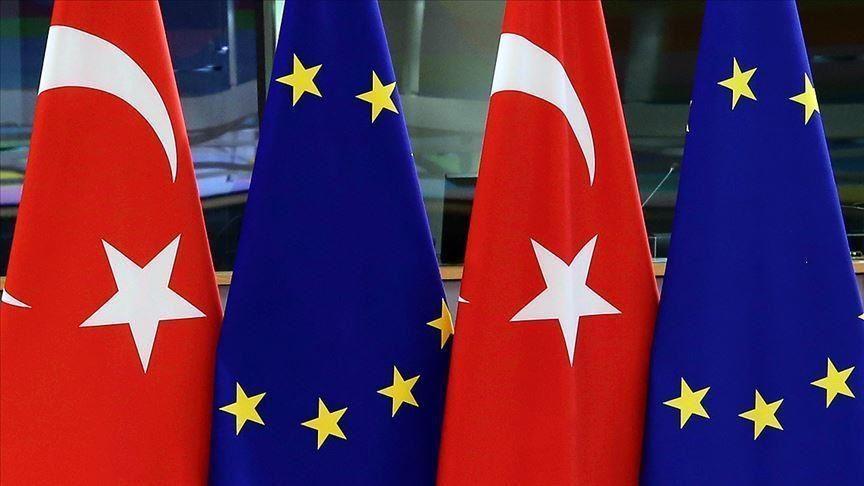
Turkey has welcomed rhetoric expressed at the European Council conclusions regarding Brussels’ wishes to develop its relations with Turkey, but urged the bloc to fulfill its commitments towards it in a more concrete way and avoid Greek and Greek Cypriot influence on future steps.
The Turkish Foreign Ministry issued a written statement about the EU Council conclusions that were released late March 25 in light of the report prepared by the EU’s top diplomat, Josep Borrell, titled, “The status of political, economic and trade relations between Turkey and the EU.”
Although the report “was written under the influence of the narrow-minded claims of several member states and with a one-way view of Turkey-EU relations” read the statement, “We welcome the efforts made by the report to advance Turkey-EU relations on the basis of a positive agenda and the rhetoric that is tried to be reflected in the summit statement.”
Recalling that it is the wish of Turkey to develop relations with the EU on the basis of mutual benefit, the ministry said: “In this context, it is our justified expectation that concrete and constructive steps will be taken by the EU on the basis of a positive agenda.”
“We hope that linking these steps to conditions in the summit statement, addressing only certain areas and postponing them to June will not lead to the loss of the positive momentum that has been captured.”
EU to work on customs union
The EU Council conclusions admitted the de-escalation in the eastern Mediterranean and the resumption of the Turkish-Greek dialogue as positive steps and pledged to start the implementation of what it calls the positive agenda, including the modernization of the customs union and the renewal of the migrant deal of 2016.
“The EU is ready to engage with Turkey in a phased, proportionate and reversible manner to enhance cooperation in a number of areas of common interest and take further decisions at the European Council meeting in June,” read the conclusions.
Intensifying talks with Turkey to address current difficulties in the implementation of the Customs Union, ensuring its effective application to all member states, and inviting in parallel the Council to work on a mandate for the modernization of the Customs Union are cited among economic incentives.
It also called for high level dialogues with Turkey on issues of mutual concern, such as public health, climate and counter-terrorism as well as regional issues; but without citing the economy, energy or other key fields.
However, it also stressed that the improvement in all these fields is subject to continued de-escalation in the eastern Mediterranean. “We call on Turkey to abstain from renewed provocations or unilateral actions in breach of international law. Taking into account the Joint Communication, we reaffirm the determination of the European Union, in case of such action, to use the instruments and options at its disposal to defend its interests and those of its member states as well as to uphold regional stability.”
Turkey calls EU to open chapters 23 and 24
EU leaders invited the European Commission to present a proposal for the continuation of financing for Syrian refugees in Turkey and other regional countries while appreciating Turkey’s hosting of around 4 million Syrian refugees.
Turkey, however, criticized the EU for not proposing a holistic approach for the renewal of the March 18, 2016 deal that also includes reenergizing the accession process, visa liberalization and etc.
“The fact that the EU side has to be selective and give vague statements, ignoring the comprehensive content of the agreement, remain weak steps for the EU, which we want to turn into a global actor,” said the statement.
EU conclusions reflected Brussels’ negative sentiments about the recent actions of Turkey in the fields of democracy and rule of law.
“Rule of law and fundamental rights remain a key concern. The targeting of political parties and media and other recent decisions represent major setbacks for human rights and run counter to Turkey’s obligations to respect democracy, the rule of law and women’s rights. Dialogue on such issues remains an integral part of the EU-Turkey relationship,” it stressed.
In response, Turkey recalled the EU’s unwillingness to work with Turkey on these issues in a more concrete way. “Beyond dialogue in the areas of the rule of law and fundamental rights, we believe it is necessary to work on a chapter-by-chapter basis in accession negotiations. In this context, we expect the EU to open chapters 23 and 24 in accordance with the new enlargement strategy framework,” it stated.